<< Previous | Displaying results 21-30 of 92 for "Jehovah's Witnesses" | Next >>
Franz and his family were Jehovah's Witnesses. Germany annexed Austria in 1938. After World War II began, Franz's father was executed because, as a Witness, he opposed war. In 1940, Franz refused to participate in military training and would not salute the Nazi flag. He was imprisoned, interrogated by the Gestapo (German Secret State Police) in Graz, and sentenced to five years of hard labor in a camp in Germany. Franz was liberated by US forces in 1945.
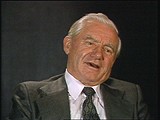
Jews were the main target of Nazi hatred. Other individuals and groups considered "undesirable" and "enemies of the state" were also persecuted.
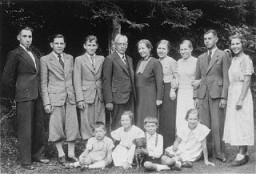
This photograph shows the Kusserow family home in Bad Lippspringe and the tram tracks in front of it. The Kusserow family members were active Jehovah's Witnesses in their region. They distributed religious literature and taught Bible study classes in their home. Their house was conveniently situated for fellow Witnesses along the tram route connecting the cities of Paderborn and Detmold. For the first three years after the Nazis came to power, the Kusserows endured moderate persecution by local Gestapo…
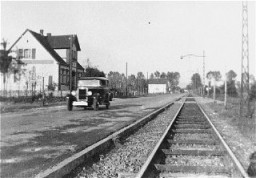
Jews were the primary targets for mass murder by the Nazis and their collaborators. Nazi policies also led to the brutalization and persecution of millions of others.
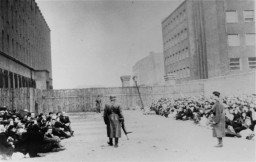
Karl-Heinz was born during World War I, while his father was in the German army. After the war, his Lutheran parents became Jehovah's Witnesses and gave their children daily Bible lessons. When Karl-Heinz was 13, the family moved to the rustic Westphalian town of Bad Lippspringe. Their home became the headquarters of a new Jehovah's Witness congregation. 1933-39: Because of the Jehovah's Witnesses' missionary work, and because their sole allegiance was to God and His commandments, their activities were…
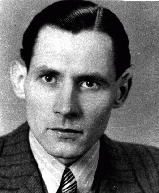
Johannes was born to Christian parents and had three brothers and three sisters. His father sold coal for heating systems. By 1933, Johannes was also a coal distributor. Like many other Dutch citizens, Johannes did not approve of Hitler's policies. He especially objected to Hitler's persecution of Jews and Jehovah's Witnesses. 1933-39: Hitler's coming to power in Germany was a threat to all of them. In 1936, Johannes became a Jehovah's Witness. His mother was also a Witness and, by 1938, one brother and…
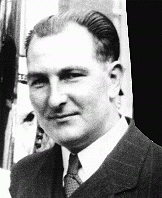
Johann was born to Catholic parents in the part of Austria known as Carinthia, where he was raised on the family farm. Johann enjoyed acting and belonged to a theater group in nearby Sankt Martin, which also happened to have a Jehovah's Witness congregation. He became a Jehovah's Witness during the late 1920s, actively preaching in the district around Sankt Martin. 1933-39: Johann continued to do missionary work for the Jehovah's Witnesses even after this was banned by the Austrian government in 1936. The…
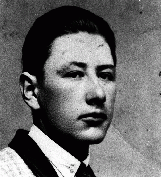
Walther was born in the state of Thuringia in east central Germany. Though his parents were Lutheran, Walther became a Jehovah's Witness in 1923. After becoming a master baker and confectioner in 1924, Walther worked in various coffeehouses in Plauen, Magdeburg and Duesseldorf. In 1928 he graduated from a professional school. He married and had two sons. 1933-39: In 1933 Walther became a pastry-making manager at the Cafe Weitz on Duesseldorf's Koenigsallee. The Gestapo arrested him at the cafe in 1937…
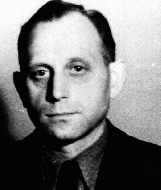
Hilda was born in a territory ruled by Germany until 1919. A teacher and a painter, she married Franz Kusserow and moved to western Germany before World War I. There, she gave birth to 11 children and became a Jehovah's Witness. After 1931 the Kusserow home in the small town of Bad Lippspringe was the headquarters of a Jehovah's Witness congregation. 1933-39: The Nazis repeatedly searched Hilda's home because her family remained openly steadfast in their devotion to Jehovah. Hilda continued doing…
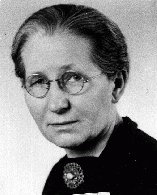
The eldest of six children born to Catholic parents, Franz was raised in a village in the part of Austria known as Carinthia. His father was a farmer and quarryman. Disillusioned with Catholicism, his parents became Jehovah's Witnesses during Franz's childhood and raised their children in their new faith. As a teenager, Franz was interested in painting and skiing. 1933-39: Franz was apprenticed to be a house painter and decorator. After Nazi Germany annexed Austria in 1938, like other Jehovah's…
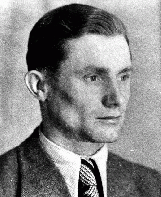
We would like to thank Crown Family Philanthropies, Abe and Ida Cooper Foundation, the Claims Conference, EVZ, and BMF for supporting the ongoing work to create content and resources for the Holocaust Encyclopedia. View the list of donor acknowledgement.